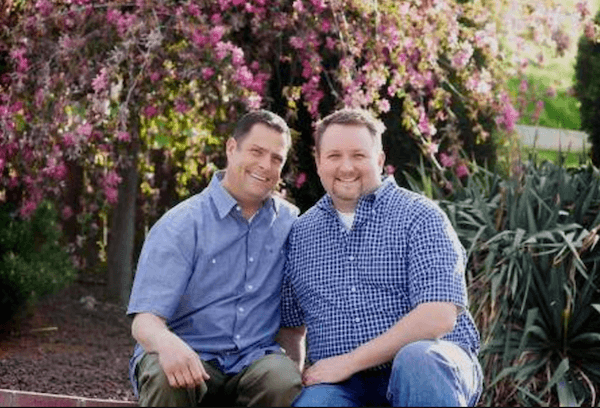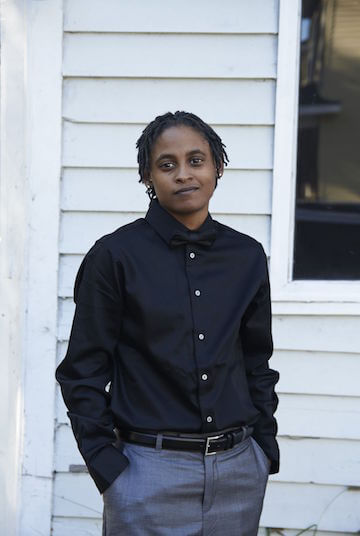Wisconsin Governor Scott Walker, addressing the 2013 Conservative Political Action Conference. | GAGE SKIDMORE/ WIKIMEDIA COMMONS
A June 6 ruling from a federal district judge that Wisconsin’s ban on same-sex marriage is unconstitutional set off a flurry of nearly 130 weddings in Milwaukee, the state’s largest city, as well as Madison, the capital, on Friday evening and Saturday.
That was not necessarily the way Senior US District Judge Barbara B. Crabb, of the Western District of Wisconsin in Madison, envisioned the process playing out.
Her decision, which came out late in the day, granted summary judgment in a case brought in February by the American Civil Liberties Union on behalf of eight couples, some of whom had already married out of state and were seeking recognition by Wisconsin.
With no court ruling yet barring enforcement of marriage ban, state AG scurries to stop issuance of licenses
Though Crabb ruled on the constitutional question before her, she gave the plaintiff couples until June 16 to file suggested language for an injunction that would actually bar the state from enforcing its ban, with further time for the parties on both sides to respond.
She also gave the state until June 16 to supplement a motion it had already made requesting a stay, to allow time for appeal, on any ruling in the plaintiffs’ favor. Crabb’s direction to the state to supplement its motion for a stay was based on the US Supreme Court’s denial, earlier in the week, of a petition from the anti-gay National Organization for Marriage, which sought a stay of the Oregon marriage equality ruling to give that group a chance to appeal.
In contrast to the State of Wisconsin’s role as defendant in the case Crabb heard, NOM was not a party to the Oregon litigation and was seeking the right to intervene in that case from the Ninth Circuit Court of Appeals when it requested that the high court stay the ruling there. State officials did not appeal the marriage ruling in Oregon, which is why NOM scrambled to insert itself into the case.
The Supreme Court handled an earlier stay request differently, approving a January motion by the State of Utah, which is appealing a December federal marriage equality ruling there.
Despite the lack of a specific injunction preventing the state from enforcing its gay marriage ban, the county clerks in Milwaukee and Madison, the state’s two Democratic strongholds, were eager to issue licenses to same-sex couples and noted that Crabb had not stayed her order.
When news of the clerks’ actions hit the news media early Friday evening –– with county offices kept open late –– the state’s attorney general, Republican J.B. Van Hollen, contacted the court seeking an emergency stay, a request not acted on as of June 8. Governor Scott Walker, a Republican seeking reelection after a stormy first term, backed up Van Hollen, but in a relatively muted statement.
The ruling from Crabb, appointed to the district court in 1979 by President Jimmy Carter, was the 20th consecutive trial court ruling in favor of marriage equality since Judge Robert Shelby’s December decision in the Utah case.
Relying heavily on the Supreme Court’s ruling last year in the Defense of Marriage Act case, Crabb found that the right to marry is a fundamental right protected by the 14th Amendment’s Due Process Clause. The ban on marriage, she concluded, “significantly interfere[s] with plaintiffs’ right to marry, so the laws must be supported by ‘sufficiently important state interests’ that are ‘closely tailored to effectuate only those interests,’ in order to survive constitutional scrutiny.”
Crabb also analyzed the marriage ban as a violation of the Equal Protection Clause. Even while finding that it could be considered sex discrimination –– in which case the policy would be subjected to a heightened level of judicial scrutiny –– she instead focused on the issue of sexual orientation discrimination. Even there, Crabb concluded, the state’s justifications for the ban should be evaluated with greater scrutiny than the typical deference given laws being challenged.
Like the other federal judges who have recently ruled in favor of marriage equality, however, Crabb hedged her bets on the appropriate level of judicial scrutiny, by concluding that the Wisconsin ban does not survive even the most lenient standard. In a detailed consideration of every justification argued by the state, she found that none of them survived constitutional review.
“It appears that courts are moving toward a consensus that it is time to embrace full legal equality for gay and lesbian citizens,” she wrote. “Perhaps it is no coincidence that these decisions are coming at a time when public opinion is moving quickly in the direction of support for same-sex marriage.”
Then, acknowledging the state’s argument that Wisconsin’s citizens and legislature might soon move to give same-sex couples the right to marry, Crabb added, “A district court may not abstain from deciding a case because of a possibility that the issues raised in the case could be resolved in some other way at some other time.”
Should Crabb, the Seventh Circuit Court of Appeals, and the Supreme Court all fail to grant the state a stay, Wisconsin would become the 20th marriage equality state. That would mean that just under 46 percent of the nation’s population would live in states where same-sex couples have a right to marry.



































